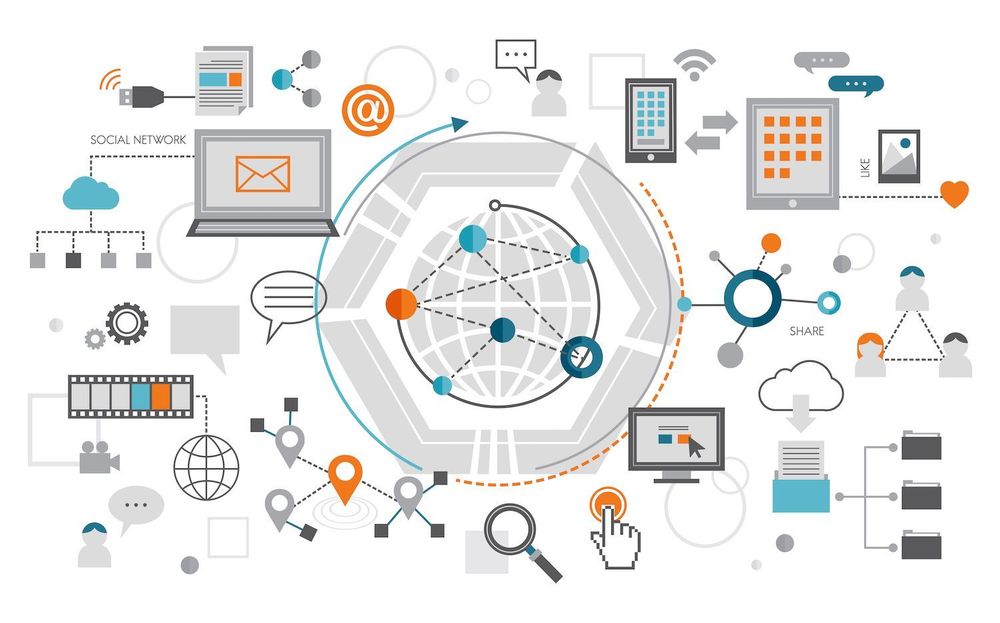Are there ways that SaaS Companies Afford to Ignore VAT and Sales Taxes? -
What I've noticed during my work is that it's not uncommon for SaaS as well as software firms to disregard the taxes associated with transactions (sales taxes, GST, VAT. ).
And I get it.
Sales taxes, VAT, and GST are complex and confusing. These are not areas IT professionals want to spend their time.

Consider the likelihood that delays of tax-related transactions may result in risks that go beyond having to pay back taxes at some time within the next several years.
I had a chat in a chat with director for Global Tax Rachel Harding One of the best knowledgeable people I have met on the topic. The conversation was about:
- 40% penalty and interest in the field of software has been accrued when it has not paid taxes on sales in the State.
- Multi-million dollar valuation adjustments from historical sales tax noncompliance during acquisition due diligence.
Many more plus.
To answer our own question, the answer isno. you shouldn't be avoiding VAT, sales tax, and also GST tax.
In this article, we will discuss the top five elements SaaS enterprises must know about taxes. Most of this information is based on conversations I had with Rachel. Below, you'll be able to watch two of our chats for more information.
Five Key Factors SaaS Companies Need to Understand about Sales Taxes
1. VAT, sales, taxation on GST, VAT and sales can have an impact on SaaS values
In the time that Rachel was on the mergers and acquisitions tax team of software startups, she was able to see price increases of million dollars due to tax noncompliance.
"If you're contemplating making any kind of change in ownership regardless whether it's a significant or a minor purchase They'll want to take a look at your company," Rachel explained. "They are going to examine your entire process for example whether you are aware of the areas where your items can be tax-deductible? Are you following these regulations when collecting, remitting or making tax payments? Are you compliant? In the event that you're not, your customer may need to have you fix the issue prior to purchasing the item, or reduce the price of the purchase."
2. If you've performed things right, there's not a reason for you to be owed anything extra
"If you adhere to the right procedure, technically, it's net-zero for you," Rachel explained.
The sales tax is a consumptive taxes- a tax on the customer and not on your business. This shouldn't be a tax you're spending money on. It's still the obligation of the seller to be capable of collecting sales tax on your client's behalf and then pay it to the appropriate department of the government. The buyer is responsible, however that is buyer's duty to.
"It's the moment you commit wrong that you'll be able to suffer an economic loss as well as an obligation on your balance account. It's actually impossible to calculate sales tax 2 years after tax was due. The tax is then direct from pockets."
3. Consumption Taxes are calculated on the location for the Buyerand not the Seller.
Sales tax can be a little complex (especially for countries like ones in the U.S.), but in general, what you have be aware of is that sales taxes will be collected in the place where the profit of the product is used (aka the location where the client's area is). Taxes aren't based on where you are or the place of the office of your company.
In reality, the primary information used in sourcing transactions is the sales invoice along with the computer's IP address. The title implies that SaaS is taxed in an same way as products but isn't a service, and only 20 out of forty-five U.S. states with sales tax systems tax SaaS. In the 2018 tax year, if you've got sufficient revenue taxable within the area that is higher than the amount required, you'll legally be classified as having an economic connection (a huge shout-out the case of South Dakota v. Wayfair for this idea! ).
A threshold for sales can be defined as the number of sales within the designated region before you are required to make tax payments. Every tax zone (whether it's a territorial state one, a territory state or territorial national level) has its own way to define an acceptable threshold.
4. There is no doubt that the Tax Laws and Regulations have major changes over the last 10 years.
Sales tax as in addition to VAT and various taxation relating transaction tax have all been reformed over the last ten years. Certain changes are more important than others and have completely altered the tax structure.
2015. EU has a requirement for VAT collection from software companies that are not based on a European base.
1 January 2015 , 1 January 2015. The EU demands that software providers accept tax payments for VAT and make it in accordance with the location of their customer instead of the business location or workers.
The VAT rates are set by the administration of the country. The authorities are accountable to keep up with changes in these rates on a global size.

2018, U.S. affirms it can collect sales tax from firms that are not residents in the United States.
In 2018 , in of 2018, the U.S. Supreme Court ruled that states could impose sales tax for purchases made by vendors from outside the state (including those selling on websites) regardless of the fact that the seller may not have an actual presence in the state in which tax is levied ( South Dakota v. Wayfair, Inc.). (A.k.a. This is the primary motive behind this article, which is to inform non-residents and small businesses need to be informed about sales tax and its application.)
In the U.S., sales tax rules vary state by state. Florida and California don't require the collection of sales tax on SaaS subscriptions. However, New York and Pennsylvania have to collect it.
The year 2020 is the one in which Massachusetts changed the classification of SaaS fees in 2020 to "personal tangible assets" which means SaaS subscriptions will be sold with sales tax within the state.
In our conversations, Rachel offers other examples of how tax laws are evolving specifically for SaaS companies around the globe:
"We have seen, across the globe, governments implementing laws that target foreign-owned enterprises offering digital products as well as services. There will be a minimum of the sales. Some of them say every dollar counts as tax-deductible."
5. Global Consumption Taxes continue become more complex
New tax legislation is getting approved that directly affects SaaS. In the near future, in many countries, SaaS companies running digital platforms may be required to disclose details to sellers using their platform.
Why have tax laws changed?
Countries are aware of the loss in taxes derived from sales on the internet, but software companies don't disclose.
They're working come up with new strategies to monitor the movements of money within their states or nation and also to make sure that they are collecting it.
Four Methods SaaS Companies Can Manage VAT Four Ways SaaS Companies Can Manage Sales VAT and taxes
What then? How do SaaS businesses determine all the tax obligations that they are required to pay and keep on the globe?
There are four strategies we've observed SaaS companies employ to satisfy the tax obligations associated with transactions:
1. Don't Pay Attention
In this article, the delay of taxes on sales is a popular strategy, but it's one that could leave your business liable for decades of tax or fee unpaid and penalties. The period of time during which this method of operation can be employed is diminishing. The pace of online shopping grows, and so are the reasons and the capabilities to regulate it.
2. Self-Help
Tax preparation by yourself could be an excellent alternative for businesses that have the capability to efficiently manage their taxes by employing an internal staff.
It's not as simple as integrating an automated tax tool to the sales software you're using.
SaaS businesses also have to be thinking about:
- Make sure that all your personal information is protected and easily accessible.
- Understanding what is tax-deductible as well as how much you can be charged.
- Monitoring tax thresholds to know when it's time to pay tax and to file taxes.
- In the event of paying the appropriate amount, as well as filing taxes in timely with all taxes authorities where there's an obligation. It is possible to apply this requirement to any month, whether in a monthly, quarterly, or even an annual.
- Be aware of the latest taxes and tax regulations.
- Responding to inquiries and notices from the tax authorities. Do they consider it fraud? Is this a legal problem?
This could be difficult to a department that does not have the technical know-how and can lead to frustration and increased turnover.
3. Employ an accounting firm
If you opt to subcontract out your tax preparation as a result, you'll have less internal resources to work with however it will raise the price. In lieu of having a tailor-made strategy, working with an accounting firm typically means they'll employ a more cautious approach to ensure that compliance is met to the highest possible degree regardless of whether or not you'd prefer something more custom.
It's the kind of knowledge just an inside tax professional has access to and that requires understanding your business and its taxes, tax legislation, and how they intersect.
4. Use the services of the services of Merchant of Record (MoR) and outsource the responsibility
As a firm, we act as your sole retailer of any transaction that you perform on your website and responsible for collecting and remitting taxes for you. You don't have to be concerned about navigating reduced tax rates, custom taxation of tax-exempt transactions B2B and B2C transactions - everything is managed by us.
The record-keeping merchant can be your ally should you have tax audits or questions that are asked. When an audit occurs, we will step in and provide the direction to allow you to concentrate on expanding and building your SaaS business.
Which is the most efficient method for Your Company?
It's possible that all of it is overwhelming, but it's not the best choice to act.
According to Rachel said, "I can never promise that you won't get audited. What I do promise is that I am able to assure you that the small actions taken now will help prepare you for a far brighter chances in the near future."
To determine what's most efficient for your business She suggests assessing the strengths of your company and your possibilities.
"It's all about knowing the business you operate and the scale of your business, tax laws (duh) as well as the risks you're willing to accept."
Check out my complete interviews with Rachel Harding
Part One: Most Important Motives SaaS Companies Can't Afford to avoid Sales Taxes
Part Two: What are the taxes that are more stringent? will mean for SaaS

Nathan Collier Nathan Collier is the Director of Content and Community for .
This post was posted on this site.
Article was posted on here
